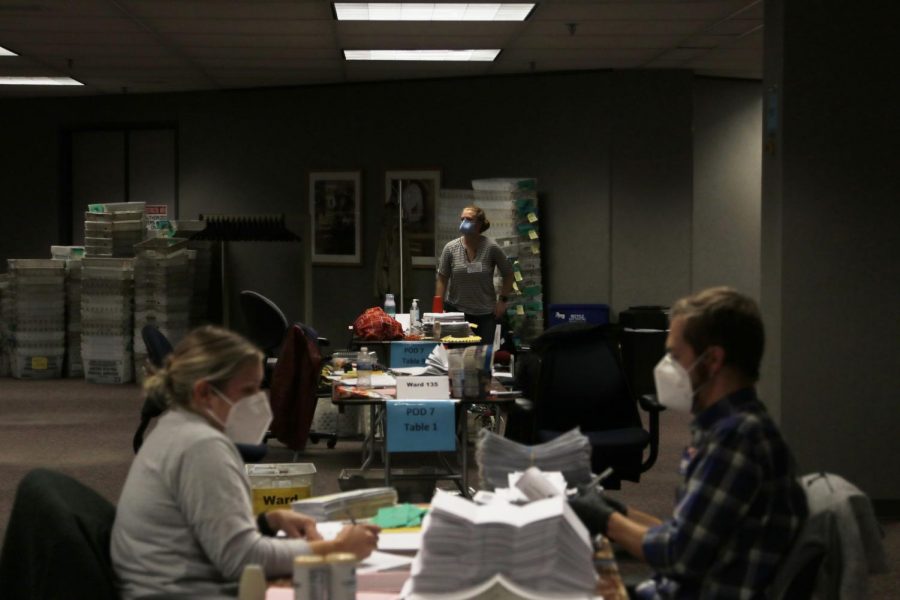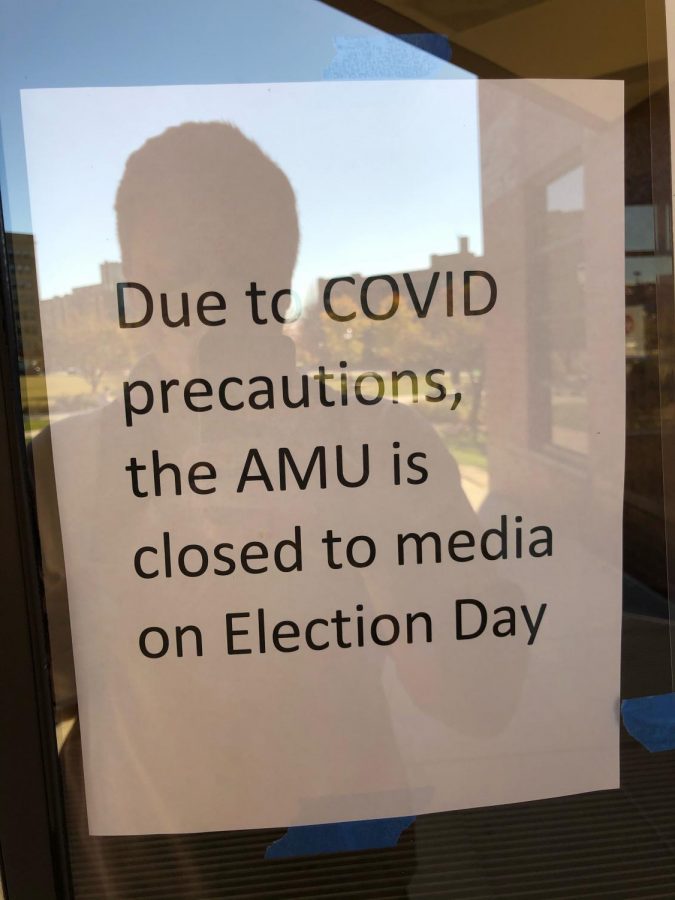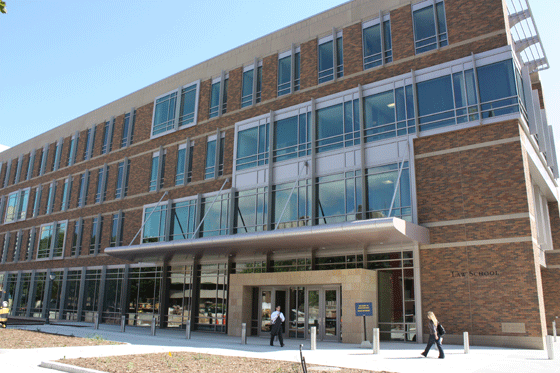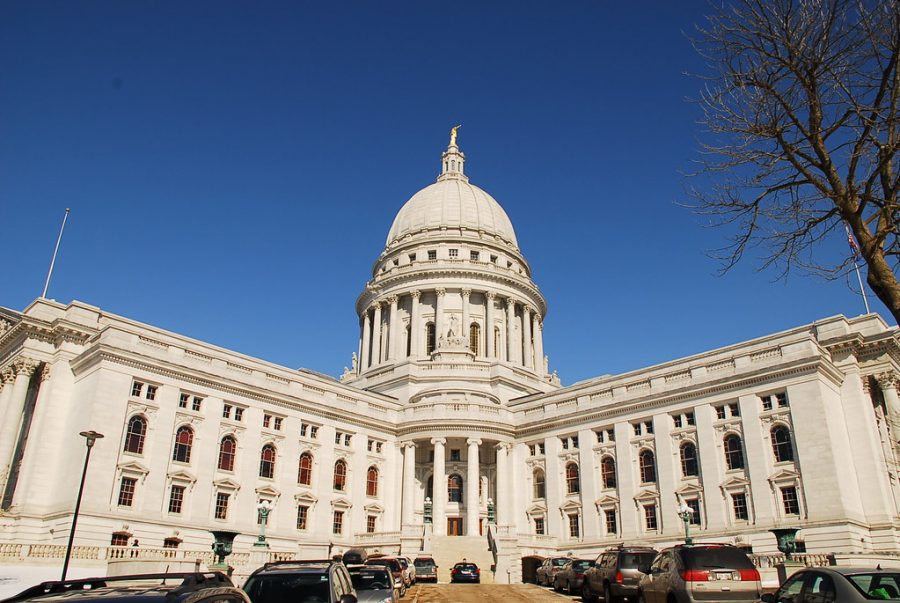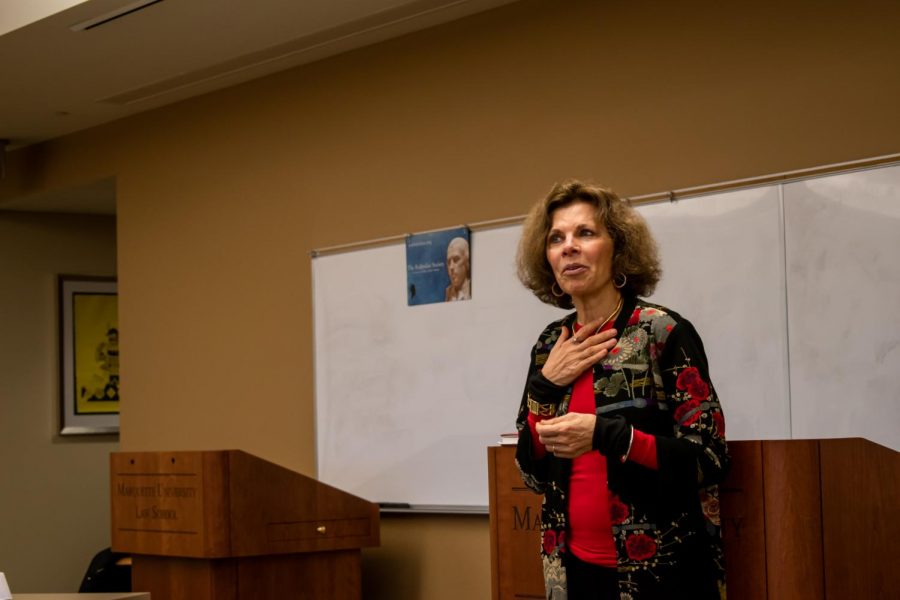In the upcoming April 7 Milwaukee mayoral election, Mayor Tom Barrett is up for his fifth term against Wisconsin Senator Lena Taylor.
In addition to the mayoral election, positions on the ballot include the presidential primary, a seat on the Wisconsin Supreme Court and other city seats such as the city attorney.
The ongoing global pandemic is at the forefront of this year’s elections.
“We are all dealing with the biggest global crisis that we have faced since World War II,” Barrett said. “This is not an ordinary election in any measure whatsoever.”
With precautions aiming to slow the spread of the coronavirus, other states have decided to delay their elections. Wisconsin officials have been in conversations about delaying the election, but there has been no change to the date thus far.
Amid national news of the pandemic and presidential primary, Milwaukee’s mayoral election is heating up.
Barrett has been mayor of Milwaukee for 16 years while Taylor has been in the Wisconsin State Senate for a nearly equal 16 years.
During Barrett’s time as mayor, he has been involved in a 2013 city sustainability plan that aims to reduce fossil-based fuel energy by 25 percent by the year 2025; focused on taking “a public health approach to public safety” and aimed to look at the root causes of crime; and helped bring the Democratic National Convention to Milwaukee, Barrett told the Marquette Wire for a previous article.
Barrett said one area he would like to improve upon if reelected is increasing the number of jobs in the central city. He said his administration has not been able to increase jobs as much as he wanted in part due to challenges outside their control.
Two barrier he identified were a “hostile state government for the better part of the decade” and the late 2000s recession.
“That really provided two huge challenges to us, but we’ve continued to fight, and I think the resiliency of the people of Milwaukee has been what has allowed us to move forward in a way that we want,” Barrett said.
If elected mayor of Milwaukee, Taylor told the Marquette Wire she would address the city’s issues with greater urgency than she said Barrett has during his time in office.
The senator said she believes it is important to lead with “a fearlessness to address the real issues and get outcomes.”
“This administration is afraid to talk about racism when we lead in segregation in the nation, when we lead in mass incarceration,” Taylor said. “We’ve got to be willing to address the issues. We have to have a sense of urgency.”
Taylor said she feels the current administration has been slow to address the outbreak of COVID-19, and has not displayed adequate urgency in addressing long-term issues like lead in Milwaukee residents’ drinking water, mass incarceration, unemployment and issues with law enforcement.
In a recent interview with the Marquette Wire, Barrett said he has been working “around the clock” to help the city during the public health crisis. In response to Taylor’s criticism of his lack of urgency to address the outbreak, Barrett said that Taylor also has power as a state senator to help make the state of Wisconsin take action.
“I was the one that approached the state government at every turn,” Barrett said. “I think a fair question for her is ‘Did she ever ask anybody at state government to do this?'”
Barrett said he asked Evers to declare a state of emergency after members of the Milwaukee Health and Fire departments informed him that the state had a shortage of personal protective equipment, such as face masks and gloves, and would be able to get access to a federal stockpile of PPE if the governor declares a state of emergency.
The mayor said his office called the governor, who responded within 24 hours.
While the election is one week away, early voting began March 16.
Barrett visited Midtown, one of the early voting polling sites, March 16. Wisconsin state law prohibits all individuals, including candidates, from electioneering within 100 feet of a polling place during time of voting. Taylor filed a complaint with election officials.
Barrett said because this was the first time Milwaukee had early voting sites for a municipal election, and with COVID-19 concerns about gatherings in public places, he decided to stop in and see how the poll workers were doing.
“So, probably three to five minutes max, talked to no voters, identified myself to no one,” Barrett told the Marquette Wire. “I was there because I was concerned about the workers.”
Nonetheless, Taylor said Barrett was overheard verbally acknowledging to an alderman that he should not be in the polling place. Barrett confirmed this.
“About 30 or 40 seconds in the conversation (with the alderman), I said, ‘We should take this outside. I’m not supposed to be in here,’ because I know what the law is,” Barrett said. “But I didn’t talk to a single voter.”
Barrett said he believes his concerns were not misguided because less than a week later, he was informed by the election commissioner that Midtown was closing due to health concerns with COVID-19.
Taylor said she found the situation and the lack of attention it received “very upsetting.”
Barrett said his campaign for reelection has taken a back seat during the last few weeks due to COVID-19.
Shane Kealy, a senior in the College of Arts & Sciences, interned at Barrett’s office this semester. He said he thinks Barrett’s position as the incumbent with years of experience as mayor will give him an advantage in this election, particularly during the uncertainty of COVID-19.
“I chose to work for Mayor Barrett’s office because of his track record and how long he’s been there and how experienced he is,” Kealy said. “I think, especially in a time like this where there’s so much uncertainty, having someone with that strong executive experience — like he has — is really important.”
Barrett also said he does not think it is time for the city to change its mayor.
“I think at a time like this — when you’re going to have a new county executive, you’re going to have a new chairman of the county board, you’re going to have a new city comptroller — that you need some continuity here. We’re in the middle of this pandemic. And I just think it would be very difficult for anybody to come in and hit the ground running,” he said. “I have been sprinting on this issue for the better part of a month now, and I don’t want us to lose where we are right now.”
Taylor said that in general, more needs to be done to help individuals in Milwaukee’s various communities outside of downtown.
Her planned approach to resolving many of the city’s issues involves incorporating a HUB model. The senator said this model would involve creating physical spaces in Milwaukee’s communities for different purposes. These community HUBs would provide populations with resources and “pathways” to success.
The HUB model is utilized by other communities across the country, according to the Pathways Community HUB Institute website.
“We would have clear pathways to work and to entrepreneurship in these HUBS in 14 areas of our city,” Taylor said. She said the HUBs would be places that provide communities across the city with opportunities and pathways to work and entrepreneurship.
Taylor said the HUB model could be beneficial for areas like innovation and small business development.
Additionally, Taylor said as mayor she would push for Milwaukee to be at the forefront of the cannabis hemp industry. While cannabis marijuana is not legal in Wisconsin, Taylor said cannabis hemp, which can be used for a variety of things including creating concrete and water filters, is legal and could benefit the city’s agriculture.
She said she thinks by promoting community innovation through the HUB model and promoting research with universities, the city could develop hemp water filters that could help filter lead out of the city’s water. This would be beneficial to the agriculture and environmental industries, she said.
Another one of Taylor’s plans, she said, is to address problems with the city’s law enforcement.
She said she wants to address “the illegal behavior of the police department,” which she said Barrett has not done. In 2017, the American Civil Liberties Union filed a class-action lawsuit against the city of Milwaukee over the Milwaukee Police Department’s stop-and-frisk program.
Taylor said the Milwaukee Police Department has not followed multiple areas of their 2018 settlement agreement, and she believes Barrett has not done enough to enforce that agreement.
For more information from the candidates, voters can visit their campaign websites at barrettformilwaukee.com and golenataylor.com.
This story was written by Kelli Arseneau. She can be reached at kelli.arseneau@marquette.edu.



